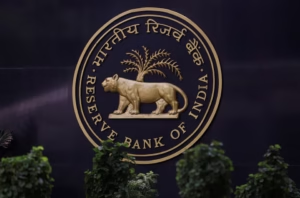Why the Stock Market is Falling Today: 3 Key Insights for Investors
S&P BSE Sensex retreated by 339.66 points at 77266.77; NSE Nifty50 reacted higher by 100.45 points to 2349.150 - What should the retail investors take note of?


Stock Market Decline Due to Tariff Disagreements and Trade
Talks Major stock market indices were at low levels at the beginning of trade on Friday, thereby indicating a negative end to the week. At 1:13 PM, the S&t BSE Sensex showed a decrease of 339.66 points, marking 77,266.77, whereas the NSE Nifty 50 noticed a 100.45-point fall and was buying at 23,491.50. Besides the major indices, the smaller cap sector as well as the mid-cap sector also registered a decrease in sales, with volatility dipping considerably lower in the session.
Why Is the Stock Market Down Now?
The largest contributing factors to the stock performance are high-weight segments such as finance and technology, which greatly deteriorated the key indices on Dalal Street. Meanwhile, the car and the pharma sectors brought in the biggest losses as the American administration war trade policies have not brought any resolution and the US is planning to impose tariffs on 2nd May.
Traders are especially nervous that the move is likely to slow down the Indian economy by decreasing the trade partnership between the two countries. For the record, both countries are moving forward with the discussion of the issues and there are greatly many chances that the dispute can be sorted through a successful negotiation; nonetheless, investors are aware and therefore, they act.
The periodicals confirm that India might escape from trade threats and therefore be charged a reduced tariff by the US. India is reported to adopt the plan of slashing down the major import duties on the US goods for their domestic industrial support. This is believed that it will kinds make the US agree on fewer tariffs invoked. For example, the concessions for US farm products like almonds and cranberries will be made and the tariffs will be compromised by over $23 billion US imports cumulatively.
Advice to Retail Investors In spite of the market’s current weak state, the experts are of the opinion that the general perspective may become better. Foreign funds are likely to boost the stock market so much, as they are expected to fuel the fourth quarter (Q4) earnings and the seeming guarantee of a 25-basis-point (bps) rate cut by the Reserve Bank of India (RBI). Foreign institutional investors’ (FII) recent outing are poised to prolong the bullish runs of SP BSE. However, the persisting weakness in the Indian market is only temporal as some trends such as the passing of the tax reforms are expected to positively influence the stock market almost immediately if passed as anticipated. Yet, the reverse is the case as the US place restrictions on other countries in a way that negatively affects the ability of those countries to offer products to the market at competitive prices and issues that have been resolved only through negotiations or trade wars. Chief Investment Strategist at Geojit Investments Limited, Dr. VK Vijayakumar, commented, “Investor’s focus back-to-back FIIs bought stocks worth more than they had sold and that built up the confidence of the bullish market.” He released a statement that says, “…US government policies are implementing incentives within local major industries forcing US companies to invest more domestically.
” However, US foreign policies such as trade disputes, the widening budget deficit, the growing protectionism culture applicable in the US, and currency wars are adversely affecting the US economy. Investors who are keen on international economics have reason to celebrate now that their big questions have gotten answers. More particularly, outside investors are the significant new influence in this market dynamic.






